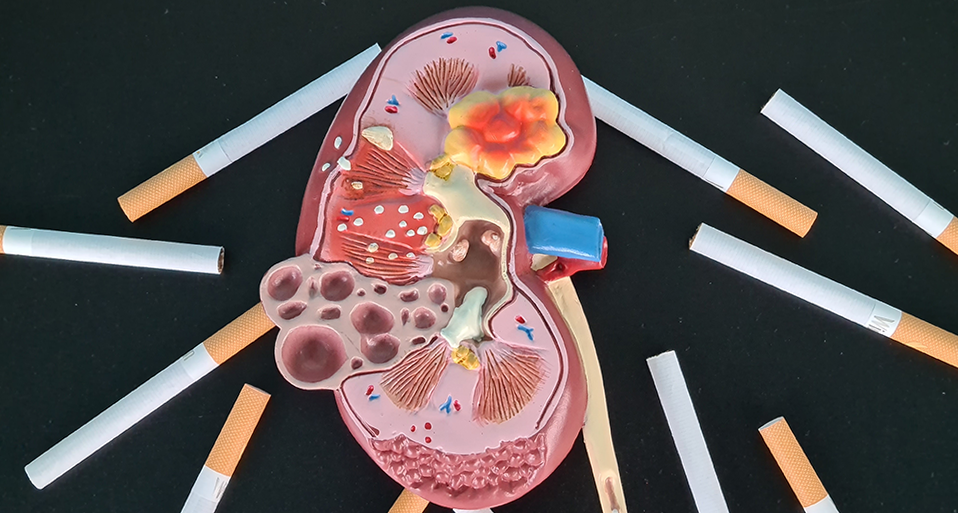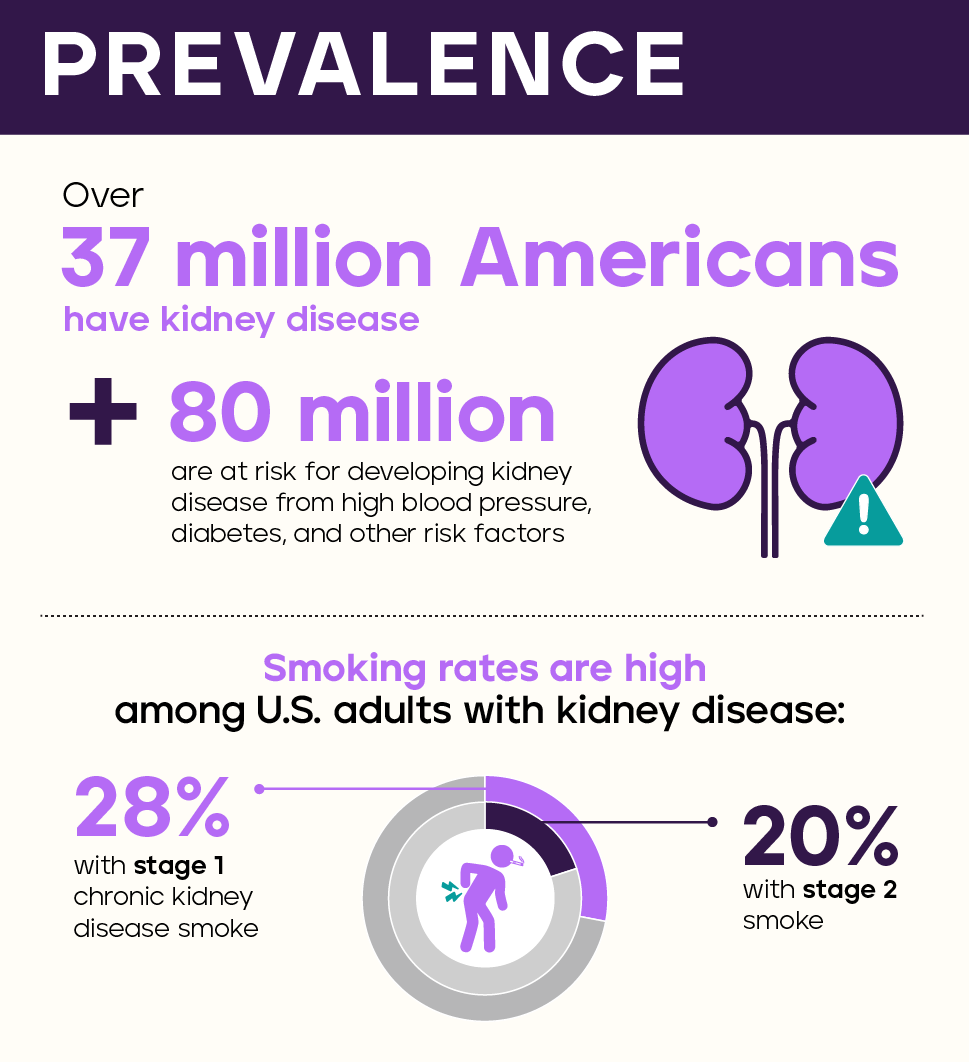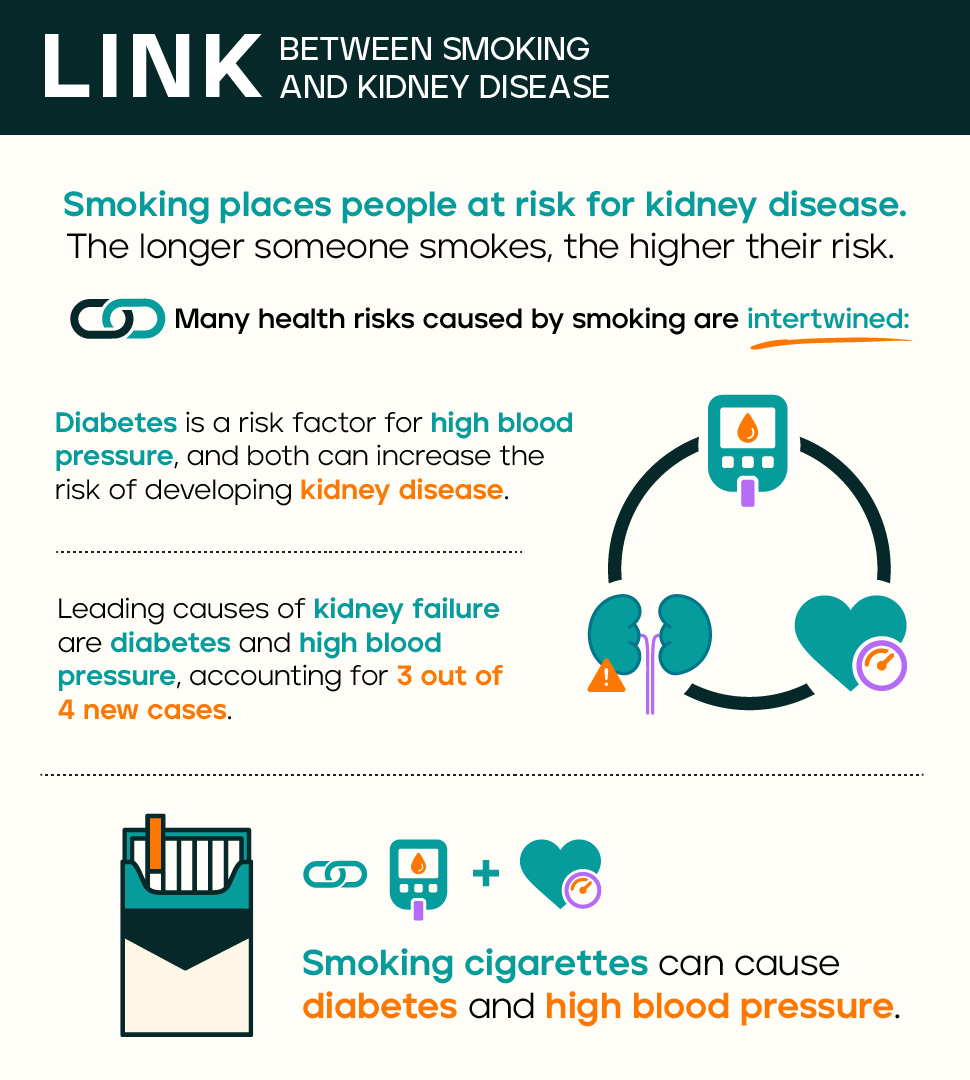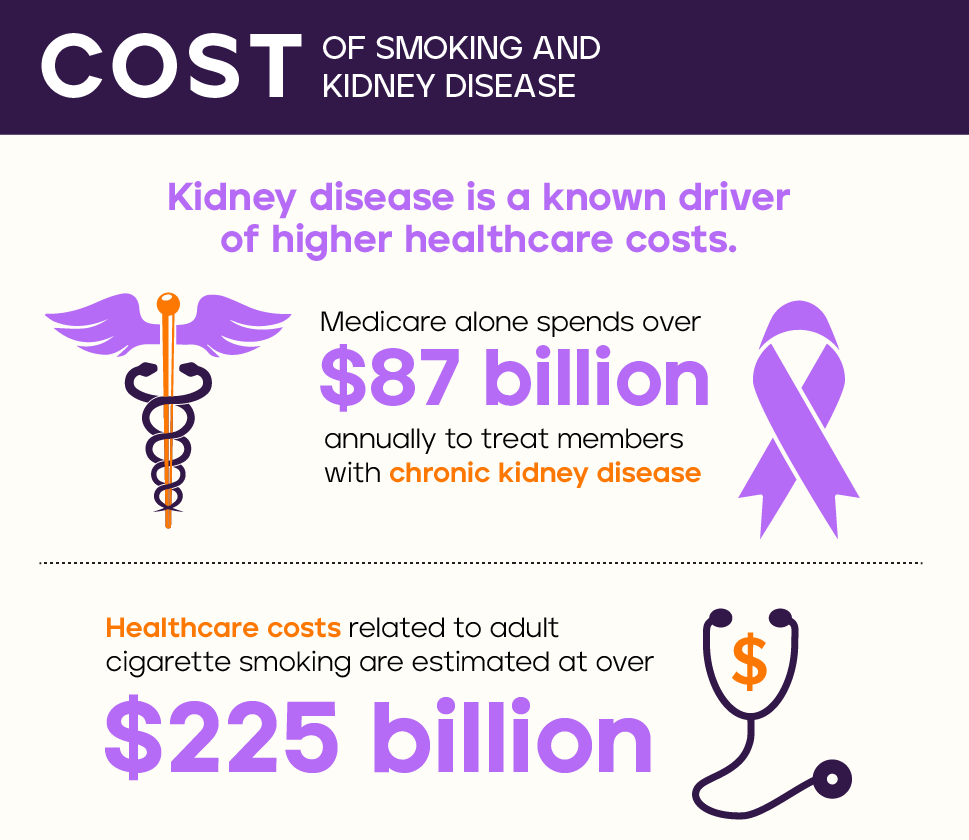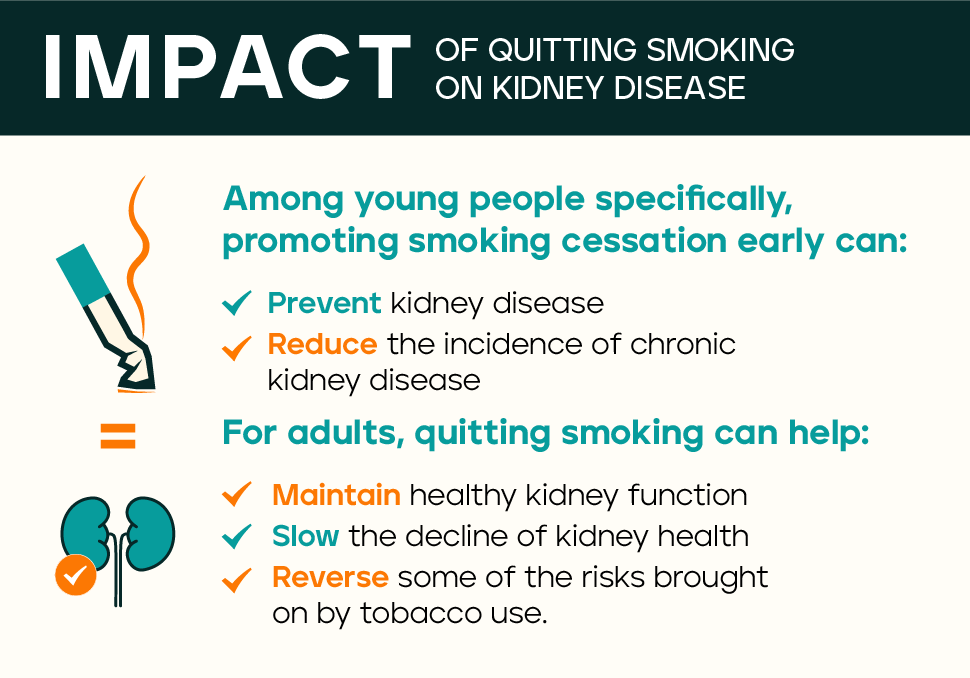The costs of smoking and kidney disease are a substantial burden across healthcare systems and payers.
But helping individuals quit smoking can significantly reduce the risk of kidney disease. Among those with kidney disease, quitting smoking can also improve outcomes.
Here are the facts you need to know.
Prevalence of kidney disease and smoking
More than 37 million Americans have kidney disease, and another 80 million are at risk for developing kidney disease from high blood pressure, diabetes, and other risk factors.
CDC data shows that smoking rates are high among people with kidney disease: 28% of U.S. adults with stage 1 chronic kidney disease and 20% with stage 2 smoke compared to 12% in the general population.
Link between smoking cigarettes and kidney disease
Smoking can lead to a decrease in renal function, placing people at risk for kidney disease. And the longer someone smokes, the higher their risk for developing kidney disease.
Many of the health risks caused by smoking are intertwined. For example, diabetes is a risk factor for high blood pressure, and both can increase the risk of developing kidney disease. In fact, the leading causes of kidney failure are diabetes and high blood pressure, accounting for 3 out of 4 new cases. Smoking cigarettes can cause diabetes and high blood pressure.
Among those with chronic kidney disease, continuing to smoke can also make existing kidney damage worse. Quitting smoking may be the one most important thing that individuals can do to slow the progression of the disease.
Cost of smoking and kidney disease in healthcare spending
Kidney disease is a known driver of higher healthcare costs. In fact, Medicare alone spends over $87 billion annually to treat members with chronic kidney disease.
However, the cost of healthcare expenditures related to adult cigarette smoking is estimated to be even higher—over $225 billion. Of this amount, Medicare or Medicaid fund more than 50% of smoking-attributable healthcare spending.
For health plans, especially Medicare and Medicaid, finding cost-efficient ways to reduce smoking and kidney disease makes solid business sense.
Impact of quitting smoking on kidney disease
Decades of research shows that quitting smoking benefits overall health, lowers disease risk, and helps the body heal from smoking-related damage. Kidney disease is no exception.
Among young people specifically, promoting smoking cessation early can prevent kidney disease and reduce the incidence of chronic kidney disease.
For adults, quitting smoking can help maintain healthy kidney function, slow the decline of kidney health, and even reverse some of the risks brought on by tobacco use.
Giving individuals effective tools to quit smoking
Offering patients and health plan members a proven quit-tobacco program like the EX Program can help reduce the risk of kidney disease and other costly chronic illnesses.
The EX Program by Truth Initiative is a digital adaptation of Mayo Clinic’s proven treatment model for tobacco use, and it works. Research shows that people who follow the EX quit plan are 4X more likely to quit.
We offer tailored text support for those with heart disease and diabetes, live chat coaching from experienced tobacco treatment specialists, robust social support to quit from peers, and more.
Contact us today to start a conversation about how we can help more of your population quit tobacco.
Or click here to see a short demo of how to EX Program works and how we partner with you to successfully engage members.

